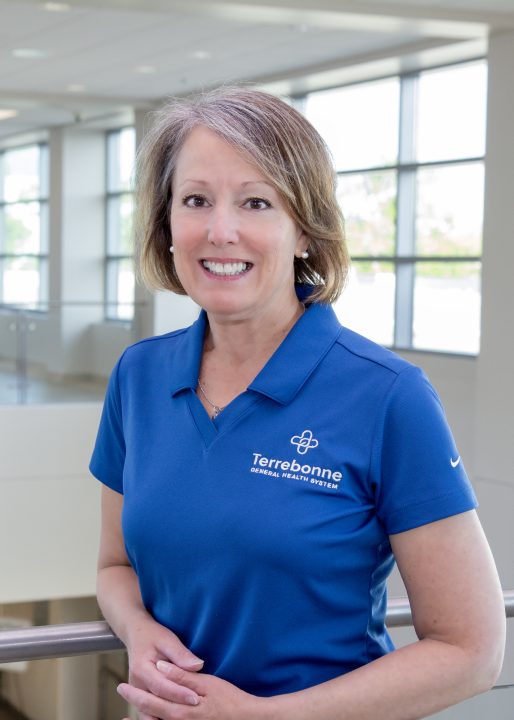
Legal Leaders | Teresa King, Esquire, LLC
April 1, 2021
The Spring Issue
April 1, 2021In the last five years, Terrebonne Parish has seen increased rates in addiction, with about 80 percent of parents with children in the foster care system dealing with substance abuse. Twenty-nine drug-exposed newborns were born in the parish in 2019; the following year, that number jumped to 41.
“After working for a very long time in this field, we do learn a lot about the underlying causes of drug addictions,” said Ellen Doskey, an assistant district attorney for Terrebonne Parish who has handled foster care cases for nearly 25 years.
“One of the primarily underlining causes of drug addiction is trauma, especially in women,” she continued. “The statics will show you that women, especially, use drugs to cope with the effects of trauma in their life.”
She added that users often have mental health issues that are “disguised by substance abuse disorders,” either anxiety, depression, bipolar or another mental illness that they cope with by using illegal substances, referred to as “co-occurring diagnosis.”
As some of these parents deal with their sobriety, they also struggle to regain custody of their children. But now, in Terrebonne Parish, Family Preservation Court, a voluntary program, will help parents who are determined to bring their child home to a safe and clean environment.
“I’ve seen many cases where parents struggle with their sobriety, and the trauma of the child being removed from their care oftentimes just exasperates: they feel defeated, depressed, they are not good enough,” Doskey shared. “But this program will provide them with support to help them through it.”
“If you have a child in state custody, you have a couple of early hearings where we determine the facts and determine that the child definitely needs to be in state custody. But then after that, you only come in to see the judge once every six months,” she explained. “So the idea behind the Family Preservation Court is they see the judge twice a month and that motivates the parents to become more accountable to their program and their sobriety.”
Doskey also noted that the program does random drug screens 2-3 times a week. “We are offering more supervision, more intensive services,” she said. “It’s for those parents who really do want to kick their drug habits and have full custody of their children.”
The program takes a holistic approach, Doskey said. Instead of centering just on sobriety, the program aims to find the root of a client’s drug addiction. “We want to know why you’re using and why you continue to use. And in order to do that, we need to get to the underlying issues.”
To address these issues, the Terrebonne Family Preservation Court has partnered with several local treatment providers, primarily Houma’s START Corporation, a nonprofit organization that offers health services to individuals with mental disabilities, the homeless, youth and veterans.
“We’re focused on their entire mental health and getting help for the children because the children have now experienced trauma, whether it’s the trauma of being neglected or abused or simply the trauma of being removed from their home,” she said.
On the road to recovery, parents have to solve other problems that may stem from their addiction. “Substance abuse is the root cause of a lot of the problems, but it does compound the other issues — they haven’t held a job, they can’t get an apartment — which means that they can’t provide a safe and stable home for their children,” Doskey explained.
The program assigns caseworkers to every parent to help them with such problems. “Parents will be reporting directly to that caseworker once or twice a week during their program, and we’re there to help them through their problems: whether it’s housing, transportation, child care — all of those issues that come up during a recovery.”
Doskey began researching Family Preservation Court three years ago after caseworkers with the Department of Children and Family Services (DCFS) introduced her to it. She later approached David Arceneaux, 32nd Judicial District–Division D, to be the court’s primary judge.
“I agreed with [Doskey] that something needed to be done to put a more concentrated effort into helping the parents who are having substance abuse problems,” Arceneaux said. “Experience indicated to me that addressing the parent’s problems was taking too long. So I thought the idea of being able to concentrate the efforts, speed the process up and pay more attention to the problem would help solve a problem sooner so that the children could then be reunited with their parents, sooner rather than later.”
Doskey and Arceneaux established a steering committee consisting of representatives of the Office of the District Public Defender, CASA of Terrebonne and DCFS, among others.
Through the La. Supreme Court Specialty Program, Family Preservation Court receives reimbursements for participants. However, the initiative needed money to get the ball rolling. All five judges in the 32nd Judicial District agreed to put up the upfront costs for it. The initial funding allowed the program to hire Valerie Cooper, the program’s coordinator, who also currently handles cases. Doskey commended Cooper for being “very instrumental in getting us off the ground.”
“This has been a collaborative effort, and we [everyone involved] have been working very well together in establishing this,” she added.
The high court approved Terrebonne’s Family Preservation Court’s application on March 3, making it just the eighth one in the state. Already, three participants have enrolled in the program.
“As a prosecutor, I do have to remind myself every day that we are a rehabilitative court and not a punishment court,” Doskey shared. “Our concern is more often not necessarily what you did in the past, but what have you done now, and what are you doing to correct that?
“I’m very happy to have this program in place so that we can have that thinking for everyone involved: for the parents, judges and children themselves,” she continued, “because our goal is always to reunite a family.”•











